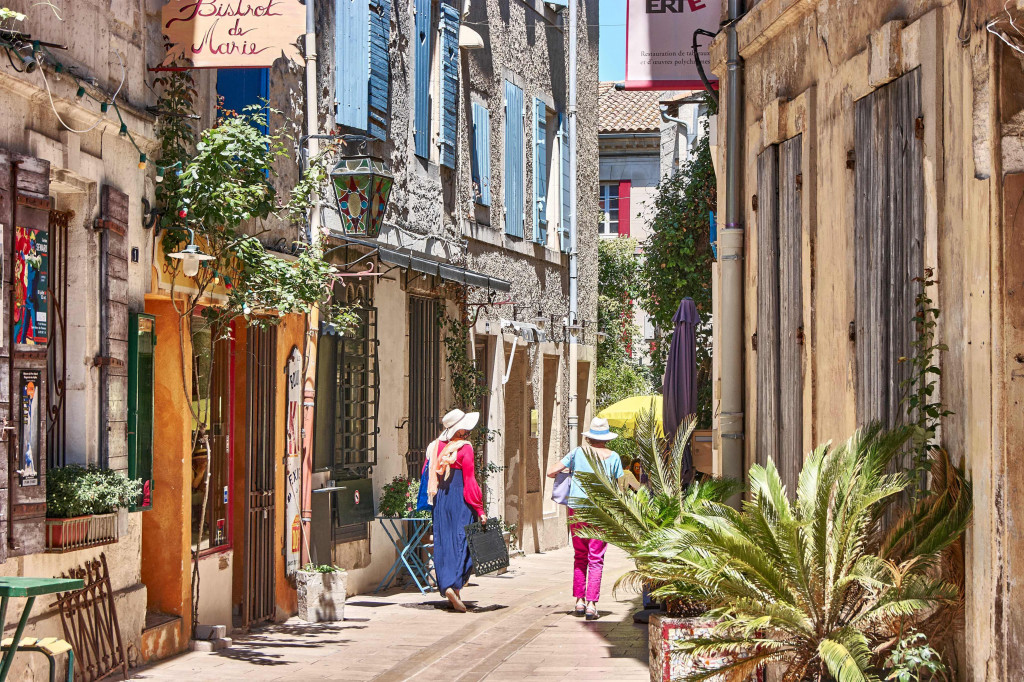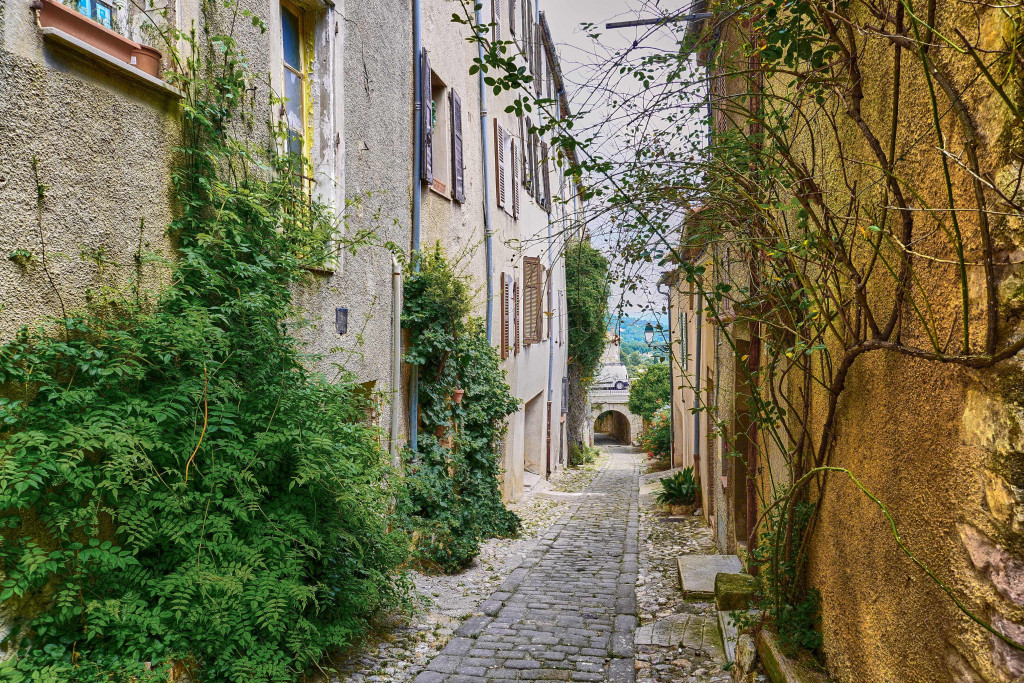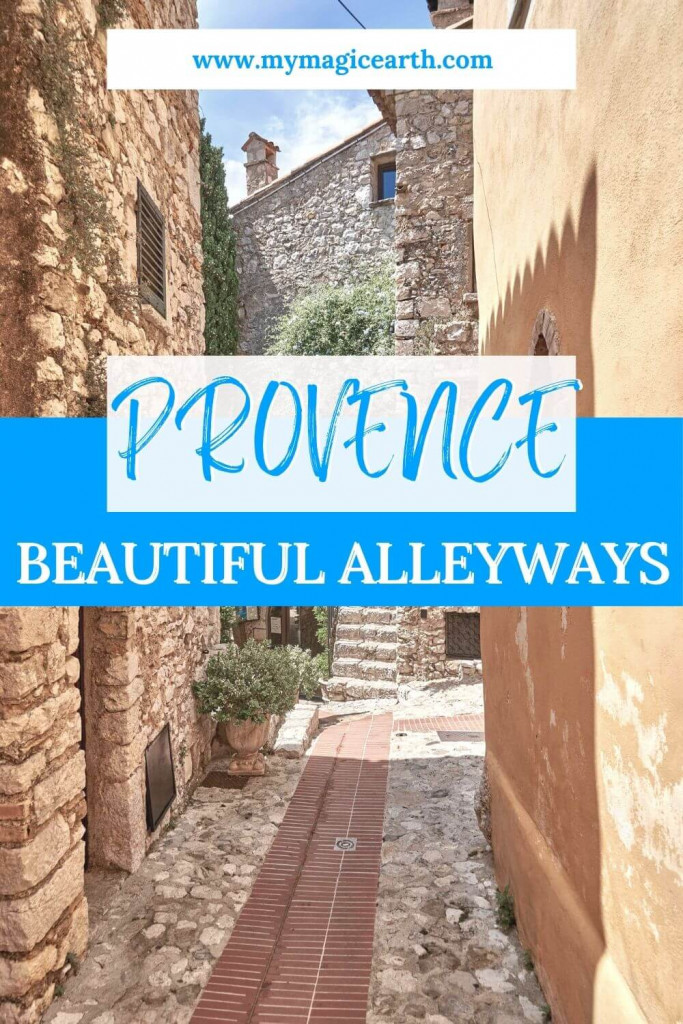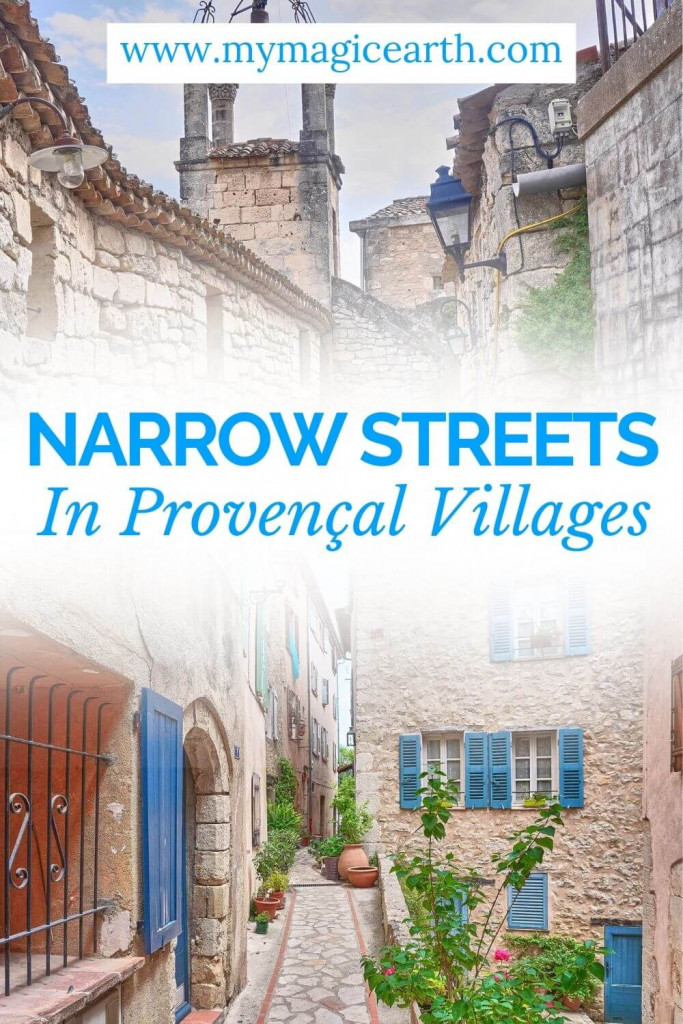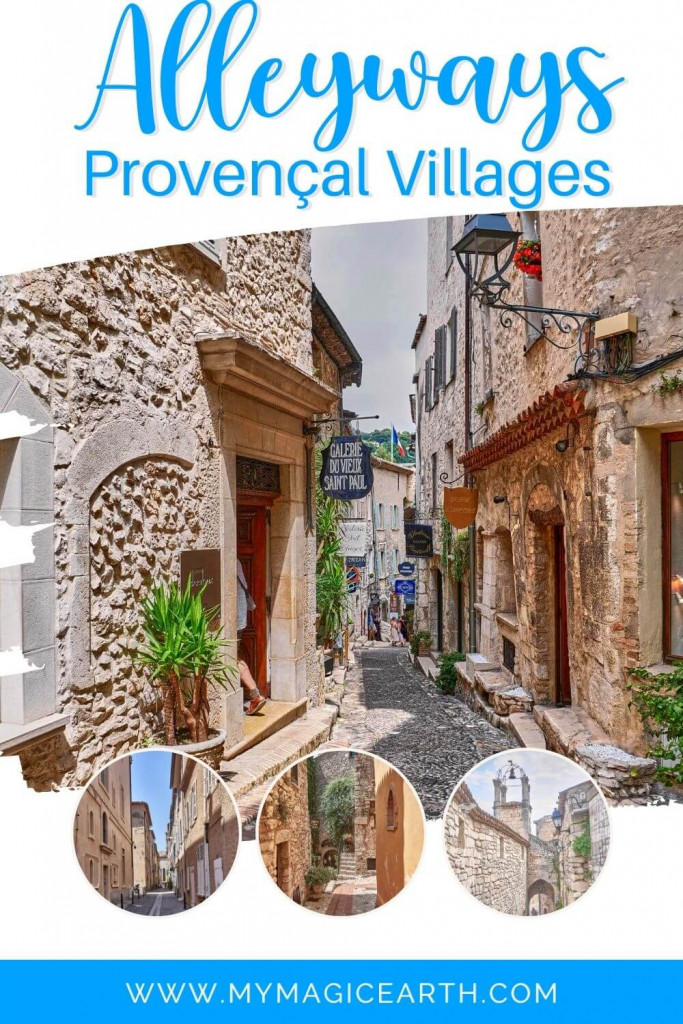Since my first visit of the Provence in France, I have been captivated by the beauty of the narrow alleyways in Provençal villages. The maze of the narrow alleyways in Provençal villages intertwines the local daily life, a life in slow motion and a relaxed atmosphere. In some smaller villages with just a few hundred inhabitants, these narrow alleys serve as both the business and social hub for the locals. Surprisingly, even in larger villages, I’ve discovered that the backstreets are enjoyable as well.
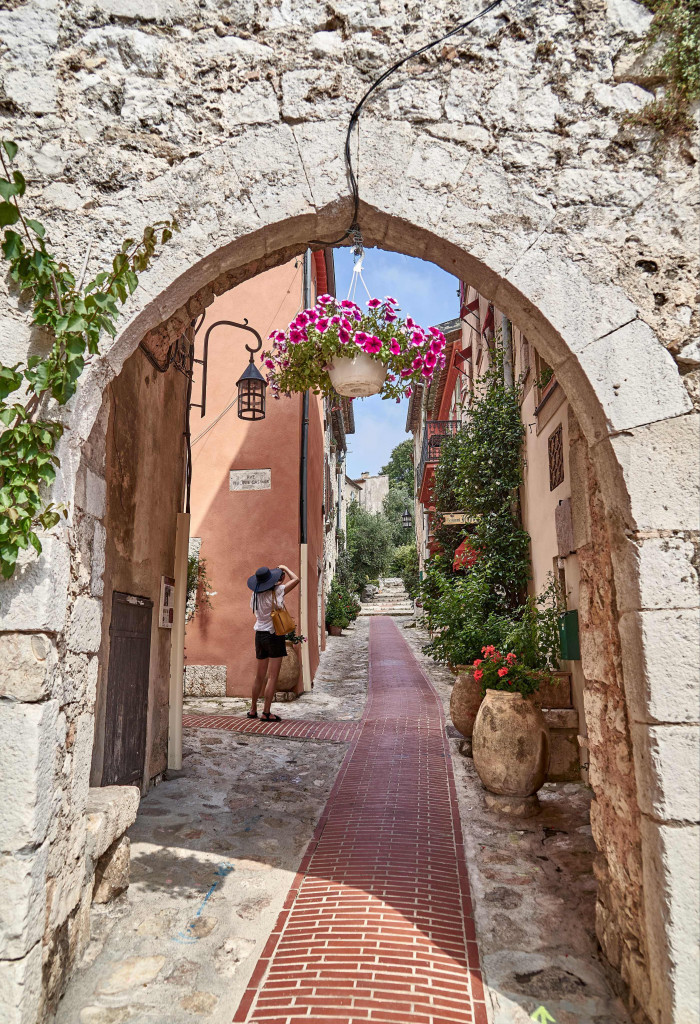
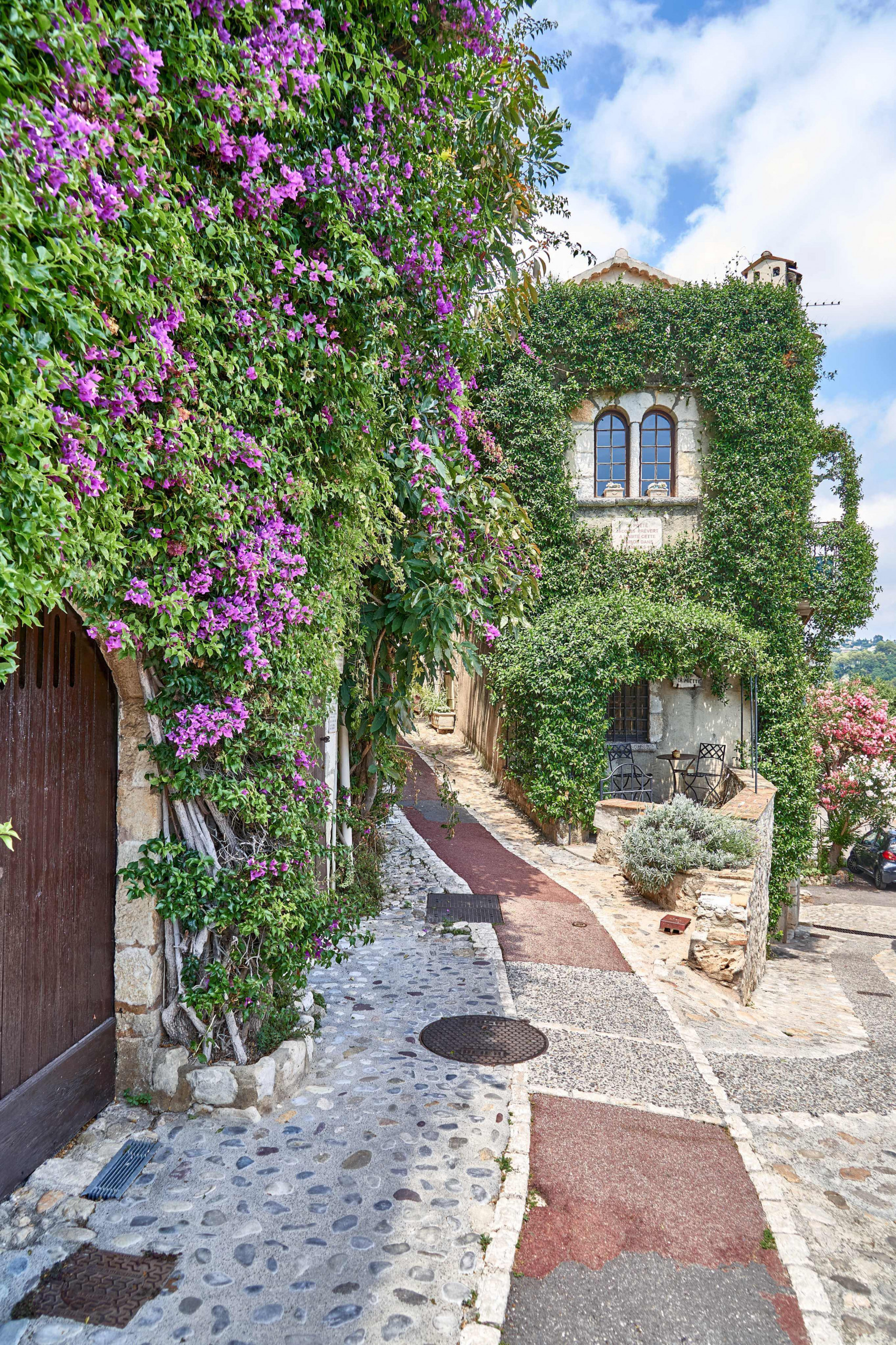
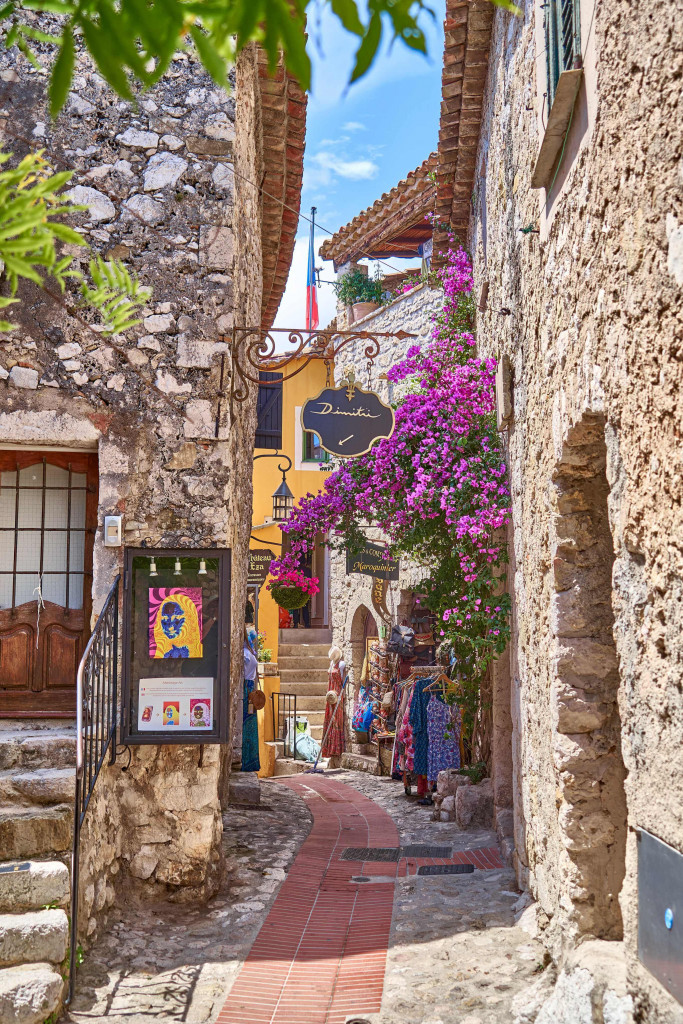
The houses along the narrow alleyways in Provençal villages vary in style, construction materials, and decorations. Seduced by these hidden scenes, I can’t resist losing myself in the beauty of the narrow streets, constantly searching for the best shot through the viewfinder of my camera.
I’ve observed four main distinctions among the narrow alleys in Provençal villages:
- The Ground of the Narrow Alleyways
- The Façade Appearance along the Narrow Alleyways
- Highlights within the Narrow Alleyways
- Staircases Connecting the Narrow Alleyways
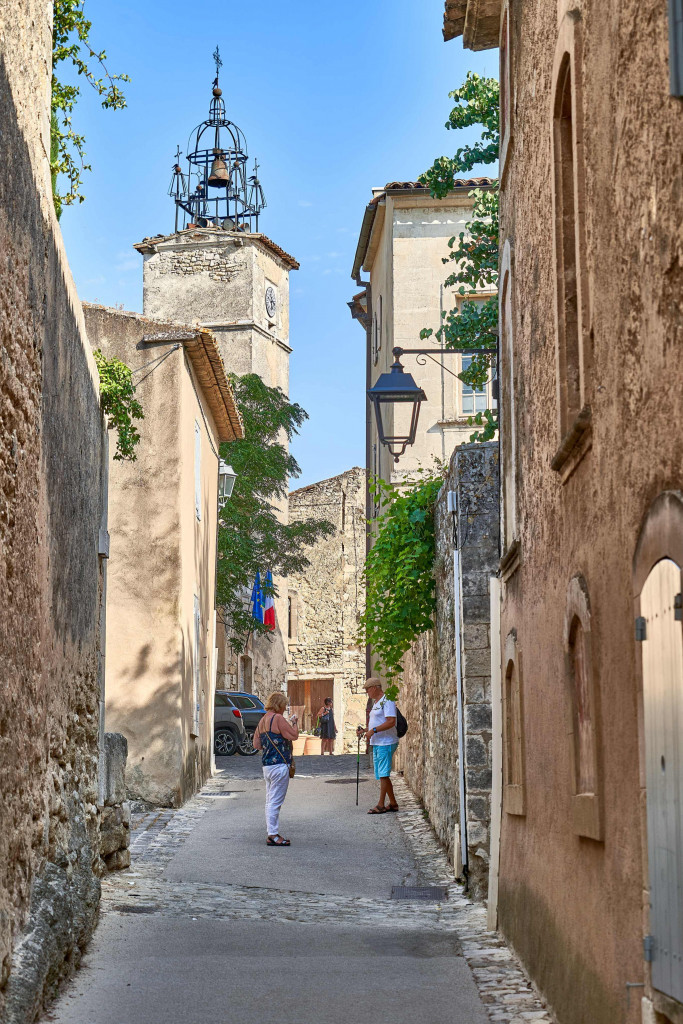
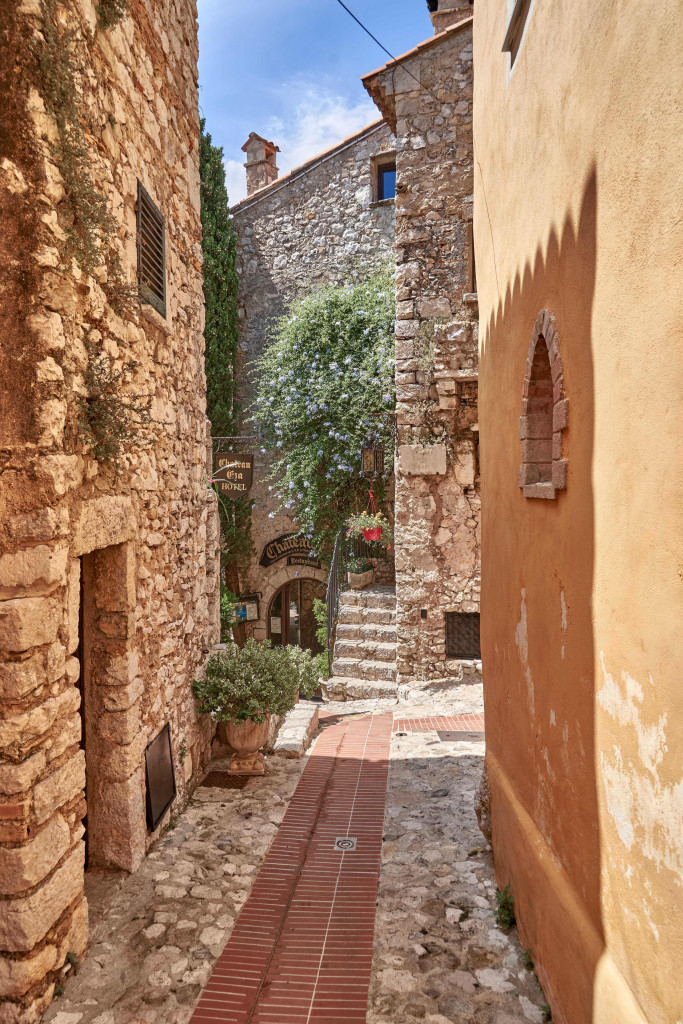
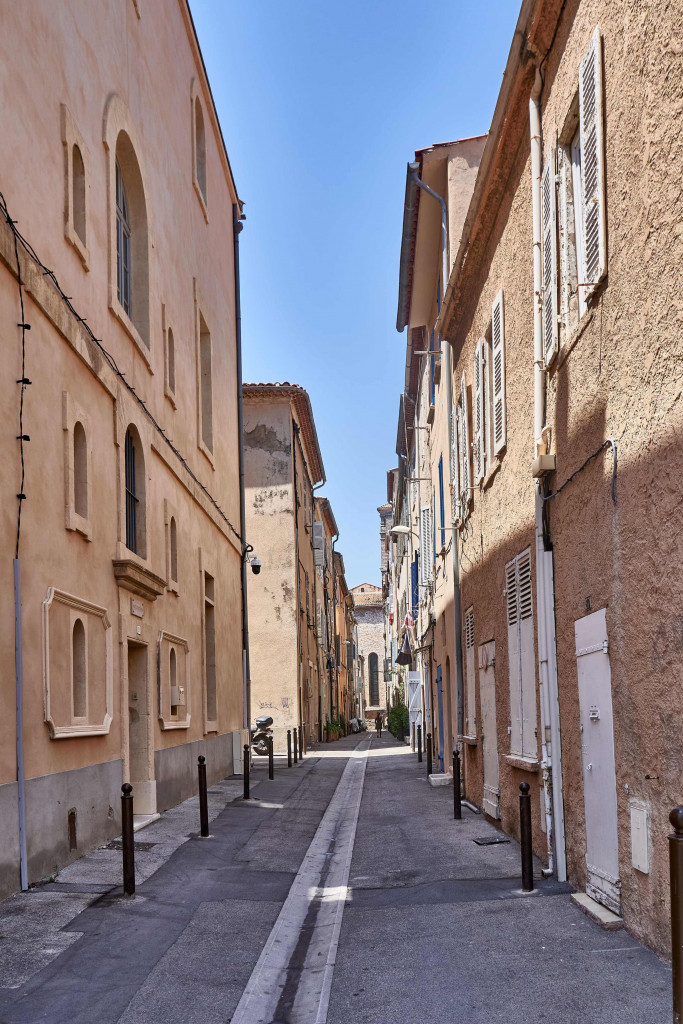
The Ground of the Narrow Alleyways
Many narrow alleyways are cobbled-stone streets, contributing to their rustic appeal. However, in places like Saint-Remy-de-Provence, some alleys stand out with a distinct touch – paved in a fresh, light-yellow hue, seamlessly blending into the village ambiance.
Eze Village takes a unique approach, decorating its main alleyways with rows of red tiles, serving as a guide for visitors. This distinct pavement style is mirrored in its neighbouring village, La Turbie. Meanwhile, Chateauneuf-Grasse embraces a different aesthetic, featuring narrow alleys with a quirky stone pavement accentuated by orange-coloured tiles.
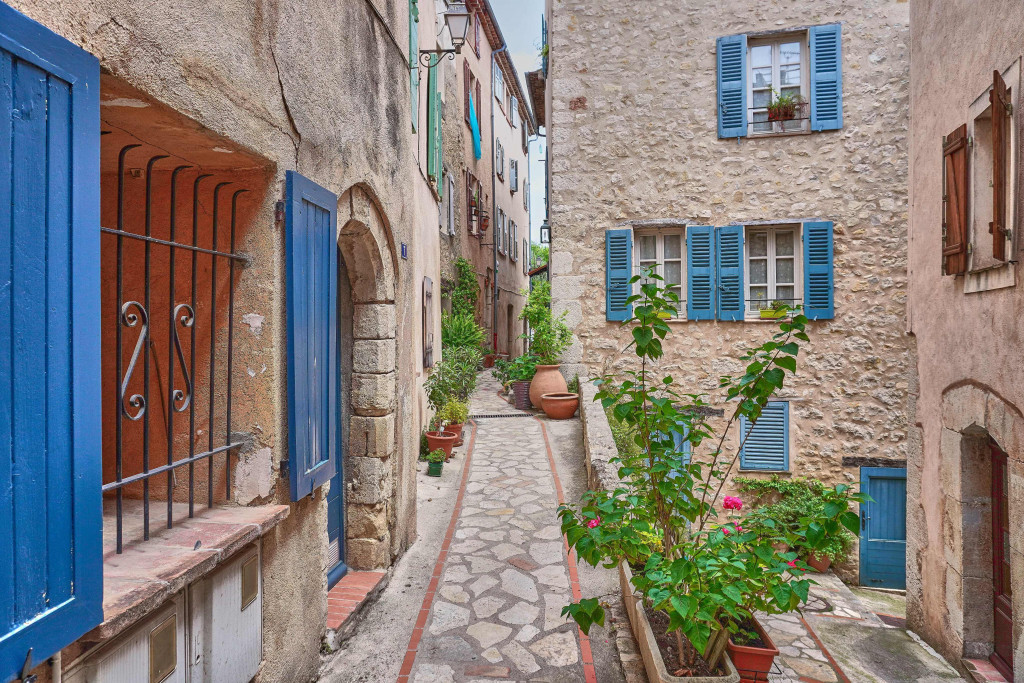
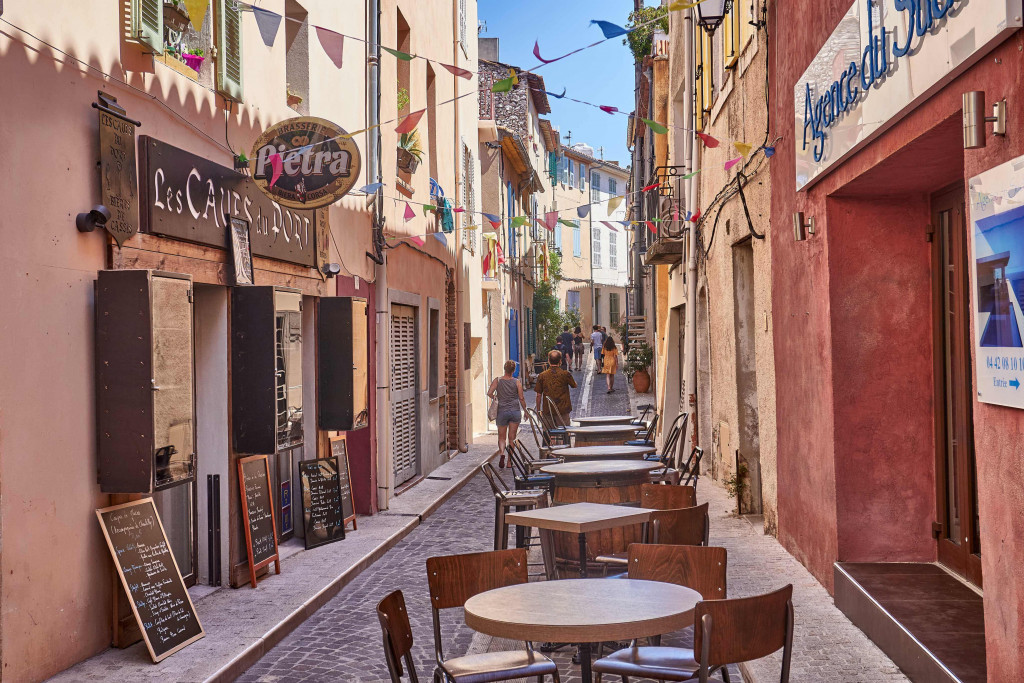
The Façade Appearance along the Narrow Alleyways
The charm of narrow alleys in Provençal villages is significantly influenced by the distinct façades that grace these picturesque scenes. A prime example is Les-Baux-de-Provence, where façades are crafted from locally quarried limestones, adding a unique touch to the village’s character. In Gourdon, walls of houses were made of light grey stone, devoid of any coating, creating a natural and earthy aesthetic. Façades often showcase the architectural essence of a weathered ambiance, featuring rough plaster and natural stones.
Typically, colours of the exteriors are in the quintessential Provençal palette of yellow or creamy caramel, occasionally veering towards a subtle white. As an illustration, Menerbes, a village nestled in Luberon National Park, has houses painted in a soothing sand hue. On the other hand, Rousillion’s homes utilize pigments derived from the ochre hills surrounding the area, resulting in vibrant façades with shades reminiscent of rust.
Highlights within the Narrow Alleyways
The distinctive features of narrow alleyways include window shutters, wall-mounted plants, and greenery in front of doorways. In the hilltop villages of Luberon, shutters often don a serene sky-blue hue. Contrastingly, Aix-en-Provence exhibits a prevalence of cream-white shutters, offering a different aesthetic. Additional decorative elements like wrought-iron hardware further enhance the overall architectural style.
Flowery façades in the Provençal’s medieval villages are another highlight. Many climbing plants, like bougainvillea, gracefully drape over the walls. In front of doorways, flowers in flowerpots, flower stands, and sometimes flower shelves are lovely and fresh, creating a delightful and fresh atmosphere. These decorations exude a fashionable and sometimes festive charm.
Undoubtedly, these focal points have crafted ornamental vignettes that elevate the romantic and rustic atmosphere.
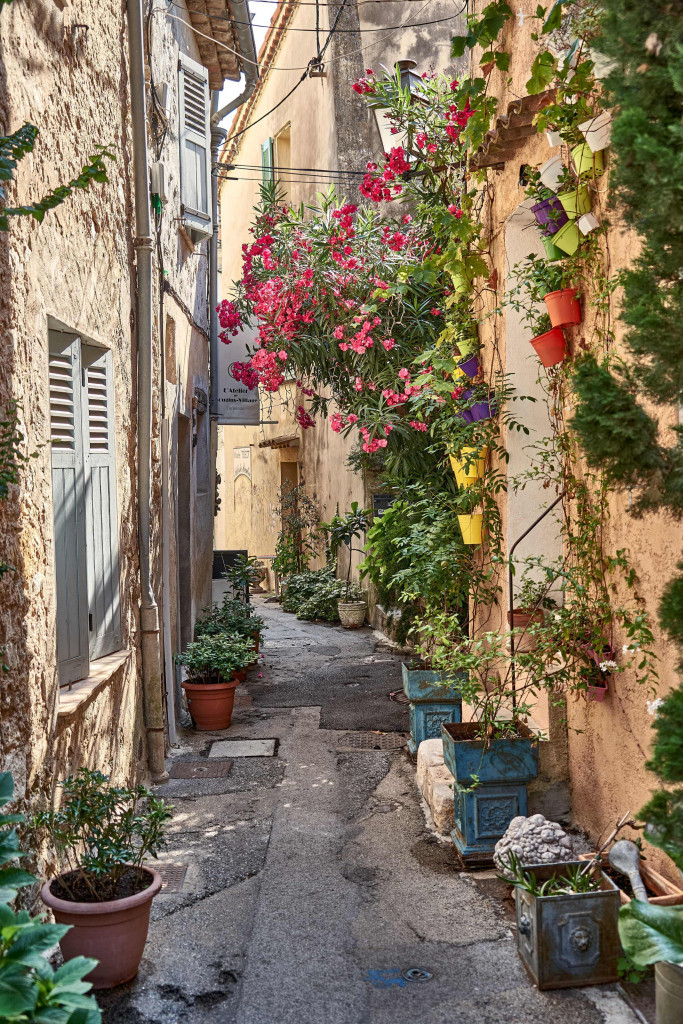
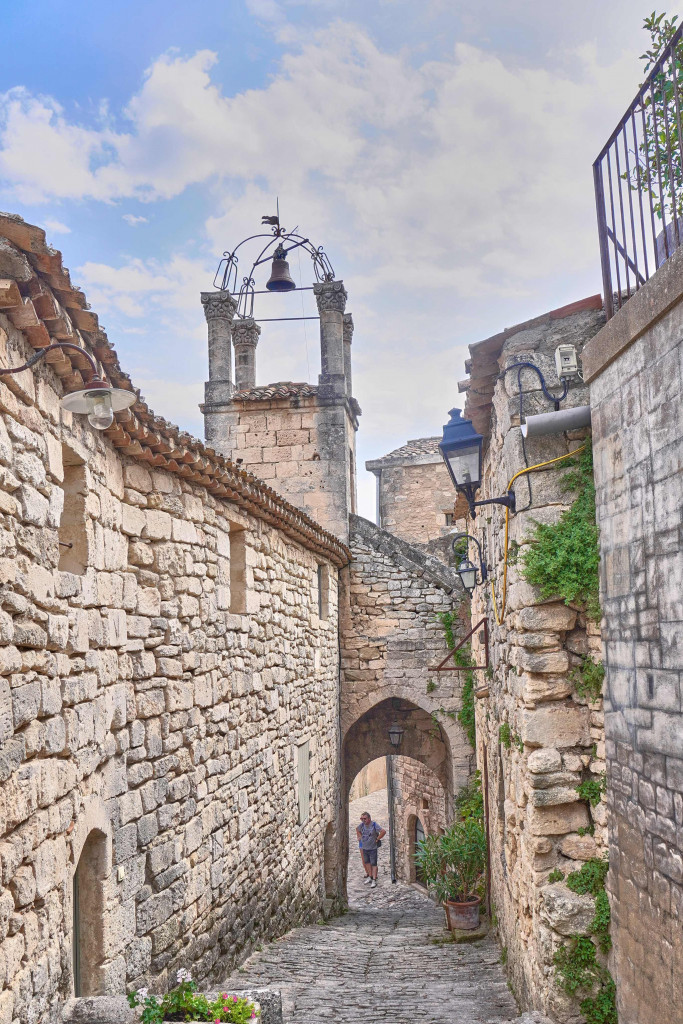
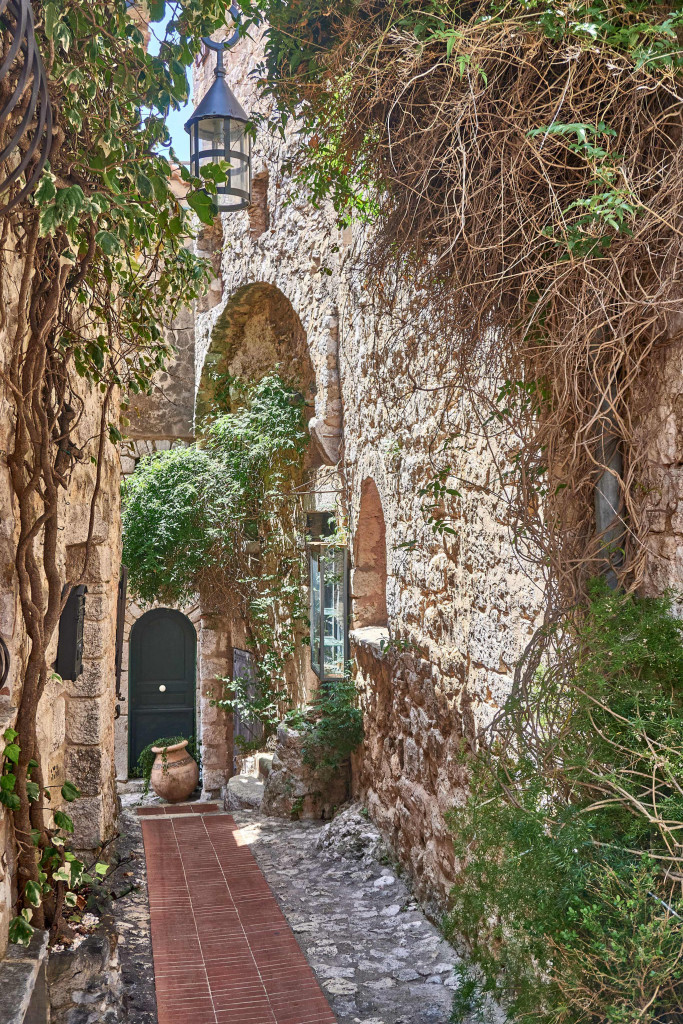
Staircases Connecting the Narrow Alleyways
Numerous staircases link the winding narrow alleyways in the Provençal villages. The flights of steps lead tohidden sights one after another. During my trips to Provence, one of the most memorable villages with such staircases is Lacoste. The steps ascend and descend, meandering through a delightful labyrinth, ending at the castle residence once owned by the renowned Marquis de Sade and now belonging to the well-known fashion designer Pierre Cardin.
The steep and clandestine alleyways in Eze exude magic. This mountaintop village, perched above the French Riviera, offers a postcard-perfect scene with its snaking alleys and lovely stone houses transformed into shops and restaurants. Every step leads to a beautiful sight, whether it’s a snug courtyard or a glimpse of the bright blue ocean.



Get lost in the beautiful narrow alleyways
Wandering through the narrow alleyways is a favourite activity of mine in Provence. In the heart of Lourmarin, I enjoy exploring well-stocked shops in search of my favorite local products. The scents of lavender-filled alleys surround me in Les-Baux-de-Provence, where lovely stone houses create a charming scene. In Saint-Remy-de-Provence, I enthusiastically seek out Van Gogh’s artworks along the narrow streets. Even when I lose my way in the labyrinthine alleys of Aix-en-Provence, I find solace on a sunny café terrace, sipping coffee while my husband enjoys a glass of wine.
Occasionally, a narrow street transforms into a quaint walkway, as those in Seillons and La Ciotat. My leisurely stroll along the charming narrow streets of Seillons and La Ciotat revealed a serene atmosphere, untouched by tension. Time seemed to stand still as I meandered through these alleyways. It felt like more a genuine depiction of Provençal living than a tourist spectacle.
